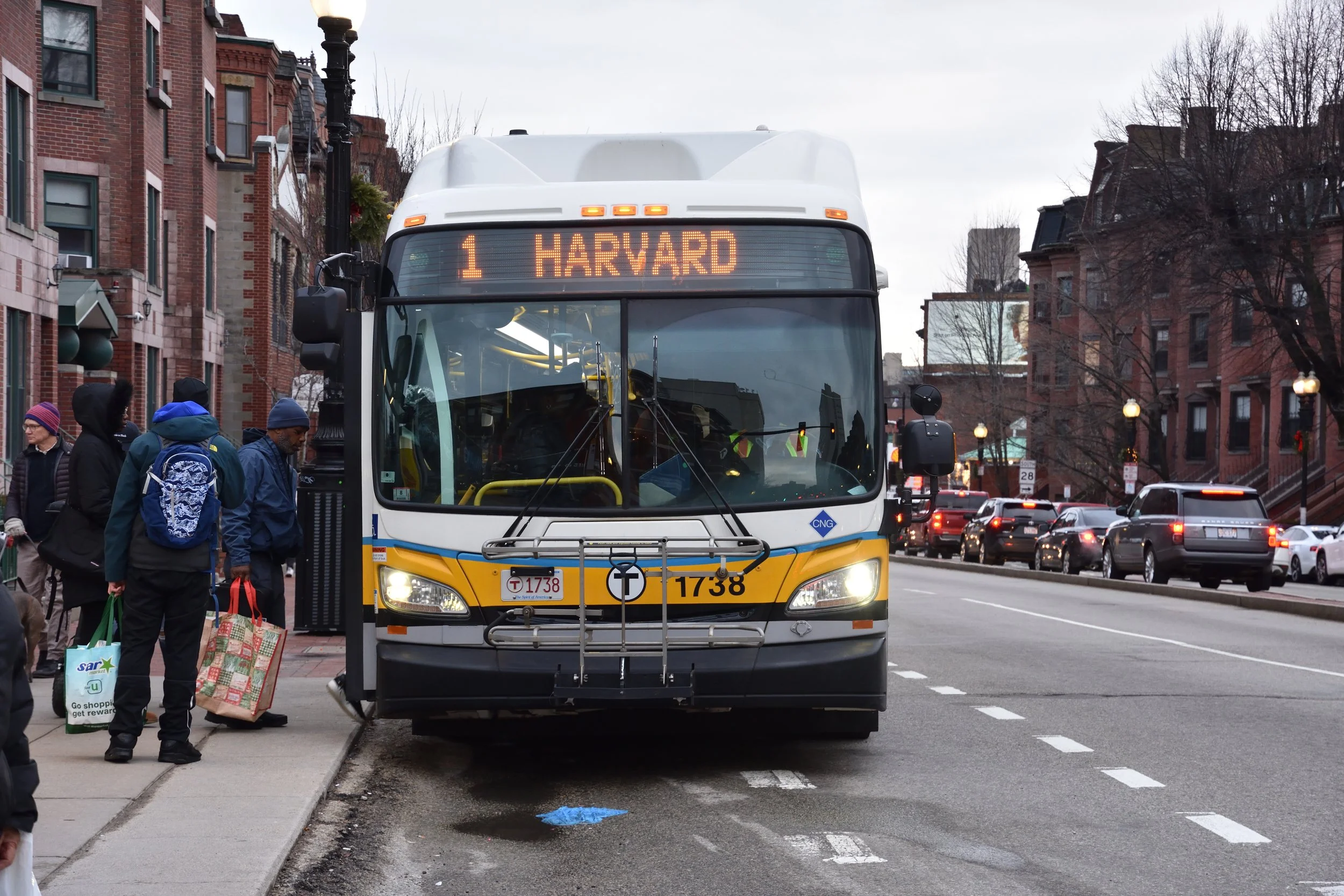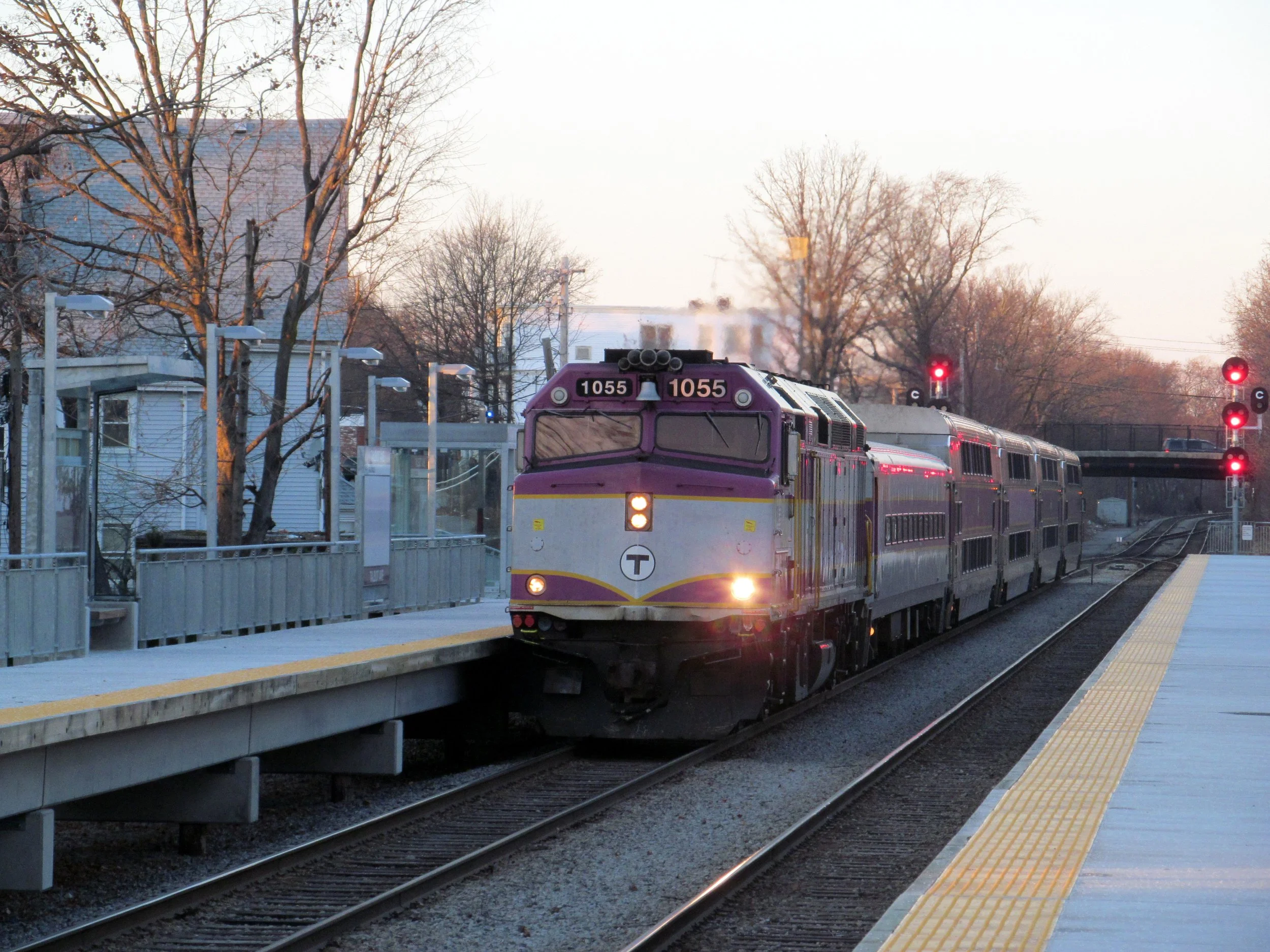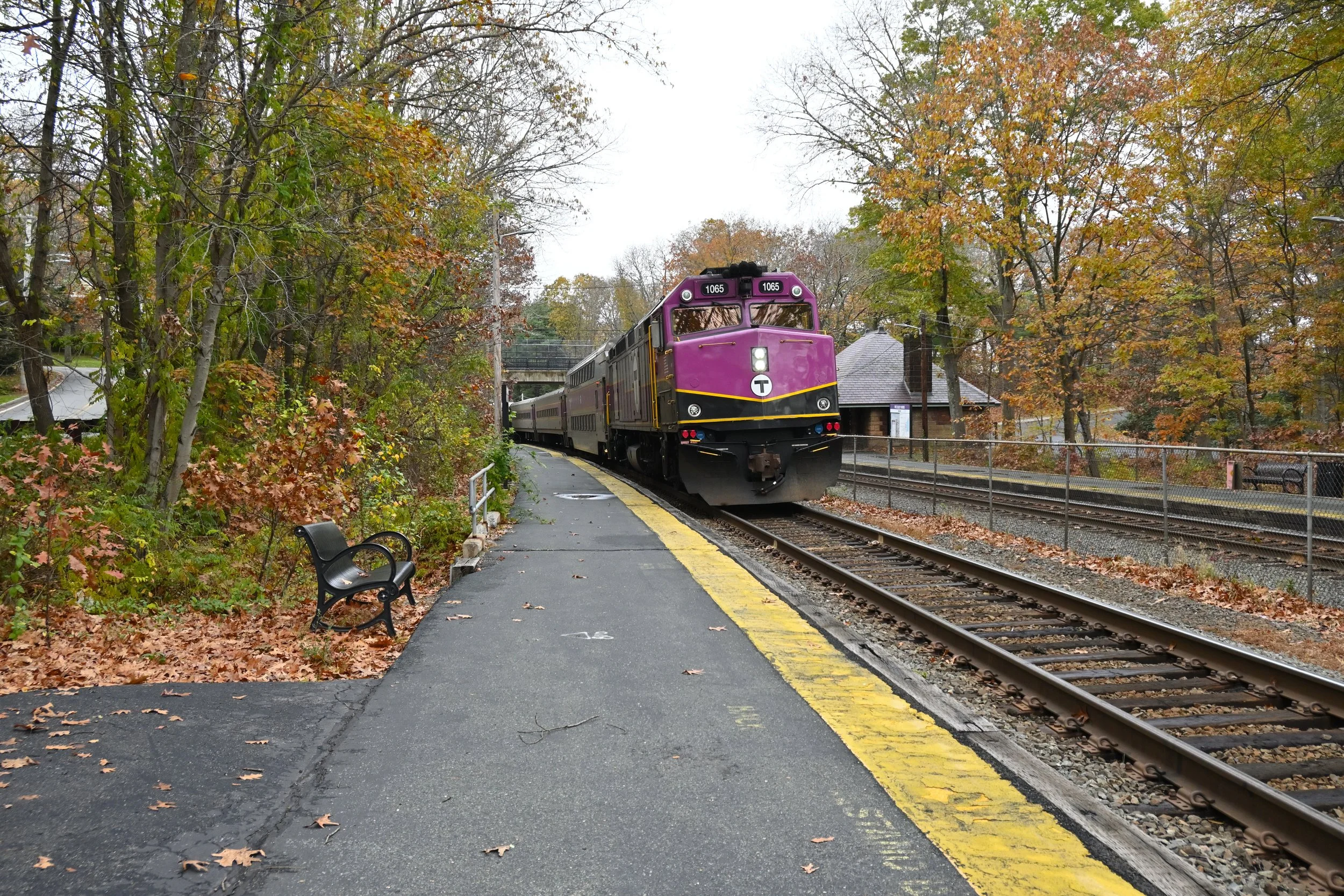The MBTA fare increase proposals (presentation, summary) are unnecessary and not even helpful in closing the budget gap. This is the latest example to the way the Fiscal & Management Control Board is using misleading statistics to support an ideological agenda that has never worked. What happened to being visionary and taking a fresh look?
Short of major investment -- which is needed more than ever -- many simple changes could improve the user experience and help alleviate capacity constraints. For example:
- The transfer policy could allow unlimited use within 2 hours (instead of the current one-transfer limit) to offer new options for shorter trips, increase ridership, reduce congestion downtown and save money.
- All-door boarding on buses and trolleys means faster trips, more frequent service, lower fare evasion and operating cost savings.
- Expanding Zone 1A on Commuter Rail to all Boston stations as well as Waltham and Lynn would offer fast service for thousands of low-income riders while reducing operating costs.
- Many low-cost changes such as upgrading bus stops, stations and terminals would improve service quality and increase ridership.
UPDATE: See our Fares & Service fact sheet (the longer version is here).
All this and more in this week's show, recorded in the WMBR studio at MIT in Cambridge. Marc offers some insights from this year's TransportationCamp DC on how regional governance could address some of our management challenges, and former T General Manager Beverly Scott was there. We hear a little bit from the growing transit advocacy network, as organizations like TransitMatters start to pop up in cities across the country.
The Transit Matters Podcast is your source for transportation news, analysis, interviews with transit advocates and more. By offering new perspectives, uniting transit advocates and promoting a level of critical analysis normally absent from other media, we can achieve a useful and effective transportation network because Transit Matters.
Like what you hear? Share it around, tell your friends and colleagues, and subscribe to the blog and podcast (on iTunes) to be notified of new posts and episodes. Support our work by becoming a member, making a donation or signing up to volunteer because we can't do this alone. Let us know what you think by connect with TransitMatters on Facebook or Twitter. Follow Jeremy Mendelson @Critical Transit, Josh Fairchild @hatchback31, Jarred Johnson at @jarjoh, Marc Ebuña at @DigitalSciGuy, and or email us here.






